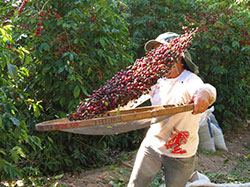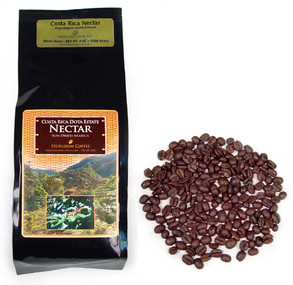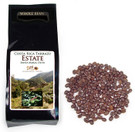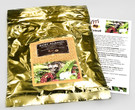- Home
- Featured Coffees
- Costa Rica Dota Tarrazu Nectar Coffee
Costa Rica Dota Tarrazu Nectar Coffee
You've never tried coffee like this before! This unique honey-style process and painstaking natural sun drying at 6500' altitude really creative a unique coffee experience.
During the brief peak of the growing season, the coffee trees' sap is flowing with extra sugar, similar to what occurs during maple sugaring time when northern regions make maple sugar from extra-sweet sap. Coffee cherries picked at this time are extra-sweet, extra-fruity, and extra-flavorful, with a distinct wine-like aroma.
1 lb (16 ounce) bags. Please select ground or whole bean and roast level. Harlequin Roast is many people's favorite. It is a Deep Forest dark roast with about 23% Light Roast. The small percentage of Light Roast preserves the brown sugar notes of this coffee, while the Deep Forest roast produces an incredibly buttery profile with hints of chocolate and honey.
More Information
When processed correctly, using a low-water method that leaves some of the sweet pulp on the beans through drying, the nectar process yields a flavor profile that is so different from ordinary coffee that people struggle to describe the unique tastes and aromas it provides.
This coffee is available in Medium (Brown Sugar) Roast, and new Harlequin Roast. The Medium roast has more of the Costa Rican beans' natural brown sugar taste, and the unique Nectar flavors (tangy fruit, wine, honey) are more pronounced. The Harlequin roast blends 75% dark roast with 25% Light Roast into a beautiful cup that is greater than the sum of its parts.
Customer Reviews
Latest Coffee Addition

Colombian Castillo Heritage Arabica!
Coffee from the days when Colombian coffee defined American consumer tastes. Warm, rich, delicious! Read more here!
 Loading... Please wait...
Loading... Please wait...













